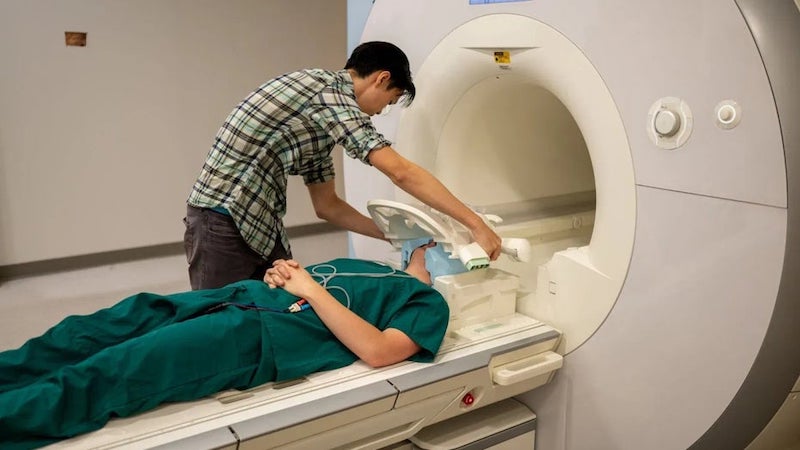science sensation? New technology translates thoughts into text
Researchers from the US state of Texas have developed a new way to translate thoughts into text. The technology could especially help stroke patients. The backgrounds.
The progress in technology is also reflected in the development of medical treatment methods. Due to the availability of increasingly compact systems, patients are already benefiting from significantly more comfortable and effective treatment methods. But an organ often remains a black box.
We are talking about our thinking organ, the brain. Scientists are constantly gaining new insights, since mental illnesses in particular are still difficult to treat. But researchers at the US University of Texas in Austin have now developed a system that can give hope to patients with medical consequences of a brain injury.
Translation of thoughts works without an implant
It happens again and again that a person is no longer able to communicate by himself as a result of an accident or a stroke. Processes still run in the brain, but those affected find it difficult to formulate their thoughts.
here want the researchers from Texas intervene. They developed a decoding device that can translate thoughts into text using language models and a magnetic resonance tomograph.
An implant is not necessary for this. In a first version of the system, subjects lay in a magnetic resonance tomograph for around 16 hours, which was necessary to train the system. They listened to podcasts and audio books, and the researchers then measured brain activity in their different brain sectors.
According to the current status, technology cannot be misused
This procedure was comparatively complex. However, near-infrared spectroscopes could be a solution. They can be used on the go and unobtrusively measure which areas of the brain have more blood at the moment. The decoding of our thoughts works reliably, but there are still some concerns.
Because the technology should only work if the affected patient wants it to. Fortunately, research in this area showed that uncooperative people or patients who resisted didn’t reveal anything about themselves. The system then only output unclear character strings.
Also interesting:



